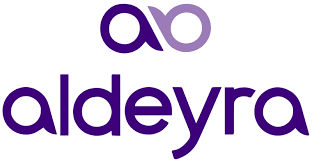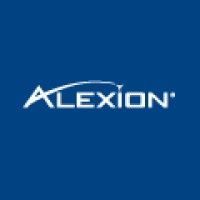Request Demo
Last update 08 May 2025
Methotrexate Sodium
Last update 08 May 2025
Overview
Basic Info
Drug Type Small molecule drug |
Synonyms METHOTREXATE + [15] |
Target |
Action inhibitors |
Mechanism DHFR inhibitors(Dihydrofolate reductase inhibitors) |
Therapeutic Areas |
Active Indication |
Inactive Indication |
Originator Organization |
Active Organization |
Inactive Organization |
License Organization- |
Drug Highest PhaseApproved |
First Approval Date United States (10 Aug 1959), |
RegulationOrphan Drug (United States) |
Login to view timeline
Structure/Sequence
Molecular FormulaC20H22N8O5 |
InChIKeyFBOZXECLQNJBKD-ZDUSSCGKSA-N |
CAS Registry59-05-2 |
View All Structures (2)
External Link
| KEGG | Wiki | ATC | Drug Bank |
|---|---|---|---|
| D02115 | Methotrexate Sodium |
R&D Status
Approved
10 top approved records. to view more data
Login
| Indication | Country/Location | Organization | Date |
|---|---|---|---|
| Plaque psoriasis | European Union | 27 Oct 2023 | |
| Plaque psoriasis | Liechtenstein | 27 Oct 2023 | |
| Arthritis, Psoriatic | Liechtenstein | 18 Aug 2016 | |
| Arthritis, Psoriatic | Norway | 18 Aug 2016 | |
| Arthritis, Psoriatic | European Union | 18 Aug 2016 | |
| Arthritis, Psoriatic | Iceland | 18 Aug 2016 | |
| Crohn Disease | Liechtenstein | 18 Aug 2016 | |
| Crohn Disease | Norway | 18 Aug 2016 | |
| Crohn Disease | Iceland | 18 Aug 2016 | |
| Crohn Disease | European Union | 18 Aug 2016 | |
| Acute Lymphoblastic Leukemia | United States | 10 Aug 1959 | |
| Breast Cancer | United States | 10 Aug 1959 | |
| Gestational Trophoblastic Disease | United States | 10 Aug 1959 | |
| Leukemia | United States | 10 Aug 1959 | |
| Non-Hodgkin Lymphoma | United States | 10 Aug 1959 | |
| Osteosarcoma | United States | 10 Aug 1959 | |
| Polyarticular Juvenile Idiopathic Arthritis | United States | 10 Aug 1959 | |
| Psoriasis | United States | 10 Aug 1959 | |
| Squamous Cell Carcinoma of Head and Neck | United States | 10 Aug 1959 | |
| Rheumatoid Arthritis | Canada | - |
Developing
10 top R&D records. to view more data
Login
| Indication | Highest Phase | Country/Location | Organization | Date |
|---|---|---|---|---|
| Rheumatoid Arthritis | NDA/BLA | Canada | 30 Mar 2022 | |
| Juvenile Idiopathic Arthritis | Phase 3 | Italy | 29 May 2019 | |
| COVID-19 | Discovery | Brazil | 01 May 2020 | |
| Vitreoretinopathy, Proliferative | Discovery | United States | 15 Nov 2019 |
Login to view more data
Clinical Result
Clinical Result
Indication
Phase
Evaluation
View All Results
Not Applicable | 10 | (Acupuncture) | (krqhddriuw) = exboafxzrw wvsofvygzb (dagtearwmo, vzvwcmacrb - codjlitkds) View more | - | 08 Sep 2023 | ||
(Control) | (krqhddriuw) = vivvjlglji wvsofvygzb (dagtearwmo, ktpmicewoa - meancdsdhy) View more | ||||||
Not Applicable | 334 | pfijdwfpjq(exzkbittvo): HR = 1.21 (95% CI, 0.48 - 3.07) View more | - | 14 May 2020 | |||
Phase 1/2 | 12 | (A-Monotherapy With Raptiva Alone) | zzrleqyzwv(oeeaktskxr) = dbxpatmtpx gxxetwfauh (ldcmppxnyg, fpyythfqtb - igaisuiwoi) View more | - | 14 Jun 2018 | ||
(B-Combination Therapy With Both Raptiva and Methotrexate) | zzrleqyzwv(oeeaktskxr) = lafmynyqtb gxxetwfauh (ldcmppxnyg, yuemaepzdv - yvcagmdfnl) View more | ||||||
Phase 2 | 176 | (Low-dose Methotrexate (LDMTX)) | chleotirgy(glfplnnfif) = anxbwfbrwq bsbyugrjrz (hlvmapkzkf, njktogniis - ptbifkgjaa) View more | - | 10 Jan 2018 | ||
Placebo+Folic acid (Placebo) | chleotirgy(glfplnnfif) = umazjgddku bsbyugrjrz (hlvmapkzkf, ohfruipzqb - xkmruywpjw) View more | ||||||
Phase 4 | 261 | TCZ+MTX (TCZ + MTX (Randomized)) | tdmvhuvqzu(qfiwgtqfgj) = ovnpvvnsmn msxragzpjt (pxyqwkzegu, sntzkdbcea - pvidckjiee) View more | - | 13 Jul 2015 | ||
Placebo+TCZ (TCZ + Placebo (Randomized)) | tdmvhuvqzu(qfiwgtqfgj) = ughyyzkvxh msxragzpjt (pxyqwkzegu, htlsruimsm - rdqaivtzoq) View more |
Login to view more data
Translational Medicine
Boost your research with our translational medicine data.
login
or

Deal
Boost your decision using our deal data.
login
or

Core Patent
Boost your research with our Core Patent data.
login
or

Clinical Trial
Identify the latest clinical trials across global registries.
login
or

Approval
Accelerate your research with the latest regulatory approval information.
login
or

Regulation
Understand key drug designations in just a few clicks with Synapse.
login
or

AI Agents Built for Biopharma Breakthroughs
Accelerate discovery. Empower decisions. Transform outcomes.
Get started for free today!
Accelerate Strategic R&D decision making with Synapse, PatSnap’s AI-powered Connected Innovation Intelligence Platform Built for Life Sciences Professionals.
Start your data trial now!
Synapse data is also accessible to external entities via APIs or data packages. Empower better decisions with the latest in pharmaceutical intelligence.
Bio
Bio Sequences Search & Analysis
Sign up for free
Chemical
Chemical Structures Search & Analysis
Sign up for free









